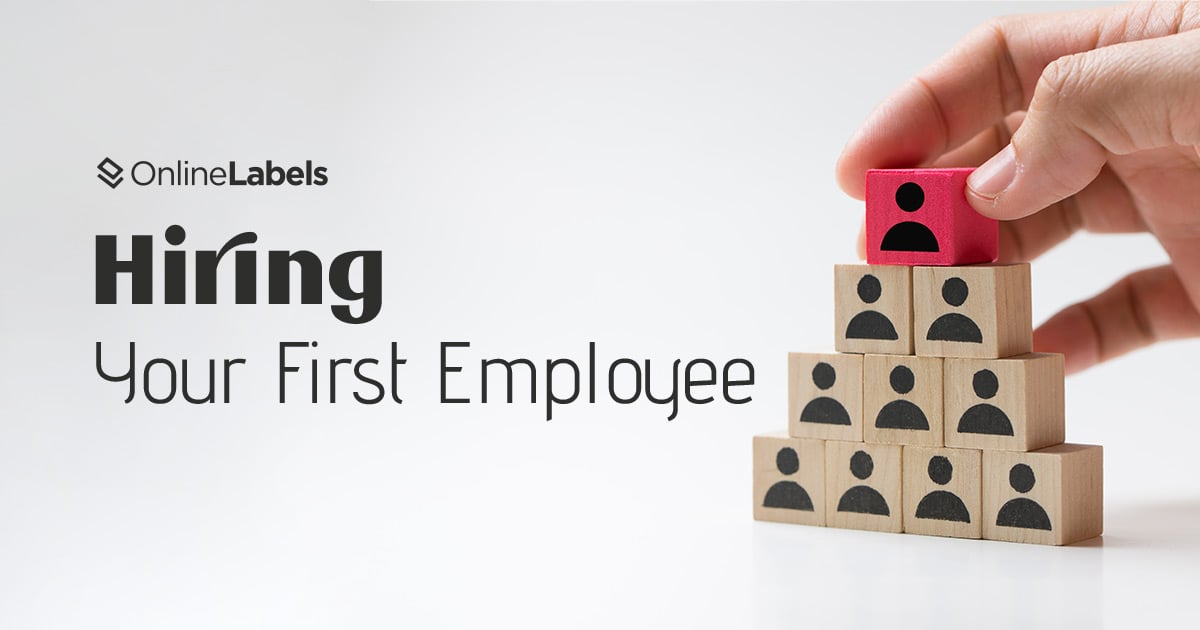When should you hire your first employee?

From the moment you're open for business, you should be thinking about how your business will grow. One question that plagues most business owners is "how do I know when to hire my first employee?" It's a daunting question but expanding your team is an essential part of scaling your operation.
Use these questions as a jumping off point in determining when to hire your first employee.
Will a new employee generate money?
When you think about hiring a new team member, it's reasonable to immediately consider the associated costs. An annual salary is certainly a commitment, taking a large chunk of your monthly business earnings. Instead, think of the money a skilled employee could bring in.
Are you struggling to meet the demands of your customers? If you sell a handmade good, for example, an additional employee can essentially double your output. Consistently falling short of customer demands can be a sign it's time to bring on a new team member. You'll want to make sure you are regularly meeting these demands otherwise this strategy can completely backfire.
There are also some less obvious reasons to bring on a new employee. A salesperson, for example, may be able to follow up on leads and close deals that otherwise may have fallen through the cracks. Someone skilled in marketing could raise brand awareness and generate website traffic you otherwise wouldn't have. These skills could make the investment well worth it.
Is my workload hurting my business?

One of the biggest risks to an overextended business owner is that customer service will likely suffer. If you miss deadlines, get behind on work, or are too busy to take client calls, you'll soon find yourself dealing with complaints. If you lose even one high-paying client, it may cost you more than the salary of one employee.
While losing a client is bad, fast-traveling word of mouth is worse. Your business' reputation is on the line. Before you stretch yourself too thin, make sure you can keep up with the work you're committing to do. If you can't, it's important you recognize the signs before you let customers down.
That's the mindset that led Gather and Grace owner and events designer, Rochelle Koontz, to hire her first employee, "I had multiple weddings per weekend and even per day. I needed assistance with design and floral set up and takedown so I could focus on the client and key details. Weddings are stressful enough—anything that didn't deal directly with the client could be done by a trained employee."
While adding an employee is a big commitment, failing to do so can greatly hurt your growing business. Pay attention to your own workload and begin looking for the right talent before you miss out on important opportunities or deadlines.
What kind of new employee can increase revenue?

Identify the gaps in your growing business that would result in the largest return on your investment. These roles can range from support to development. Here are some examples:
- Creating the product (designers, developers, etc.)
- Marketing the product (growth hackers, content marketers, analytics, etc.)
- Supporting the product (customer support, help desk, etc.)
Before you look for an employee, know what kind of employee you're looking for. There are a million different skill sets that you could identify, but it's not enough to know that you "need some help" or "need a marketer." Bringing on a jack of all trades may sound appealing, but it's unrealistic and unlikely.
Instead, try to zero-in on the specific skills you need. You don't want just a "marketer." You want a content creator who's experienced in managing a blog and social media presence, creating content calendars, and managing analytics. Now, that's specific. The clearer the set of responsibilities, the more accurately you can hire to meet your needs.
Can I write a full job description?
Before you place your first job ad, a valuable exercise is to actually write out a full job description. It should be realistic, easy to understand, and free of jargon that can weigh down job descriptions these days.
The process of writing a job description will give you a feel for what a 40-hour workweek would look like for an employee. Is there enough work for eight hours, Monday through Friday? Are there specific skills or tasks you know you need assistance with regularly? Or would you be paying someone to essentially occupy a desk, waiting for assignments?
To get you started, here are a few tips for creating a job description:
- Start with a clear, concise job title
- Outline the core responsibilities of the position and call out any duties that may be specific to your company (include location if flexibility is not an option)
- Highlight the day-to-day activities of the position to help the candidate determine if the role is a good fit, and help you attract the best applicants
- Include a list of hard and soft skills as well as any certifications and technical skills required for the role
- Accentuate any details that make your company unique, including company culture
Not ready to take the plunge?

You may still be undecided over whether or not it's time to hire. Don't sweat it. Instead, test it. Instead of hiring a full-time employee, hire a contractor. The introductory hassle of hiring a contractor is low compared to that for hiring an employee.
Rochelle Koontz shared how she utilized a contractor to learn about her business needs, "marketing is an area my company needed to grow in but something I knew little about. I didn't know what a full-time position would look like, let alone if I even needed it. I hired a contractor and it turned out to be a win. I learned more about what my business needed in that department and what the timing looked like since it was project-by-project. Now I know how to build out a full position when we're ready for it."
Hire a contractor with the same set of parameters you're looking for in an employee. You can create a contract by-project or for one month, six months, or a year. Don't be afraid to hire. Even a terrible hire is better than no hire. Mistakes are an essential part of growing, improving, and expanding. Sure, you might hire the wrong person. Maybe you've chosen the wrong time. At least you'll have the wisdom of experience for next time.
Learn more helpful tips to growing your business by browsing our articles and by joining our Facebook Group.


